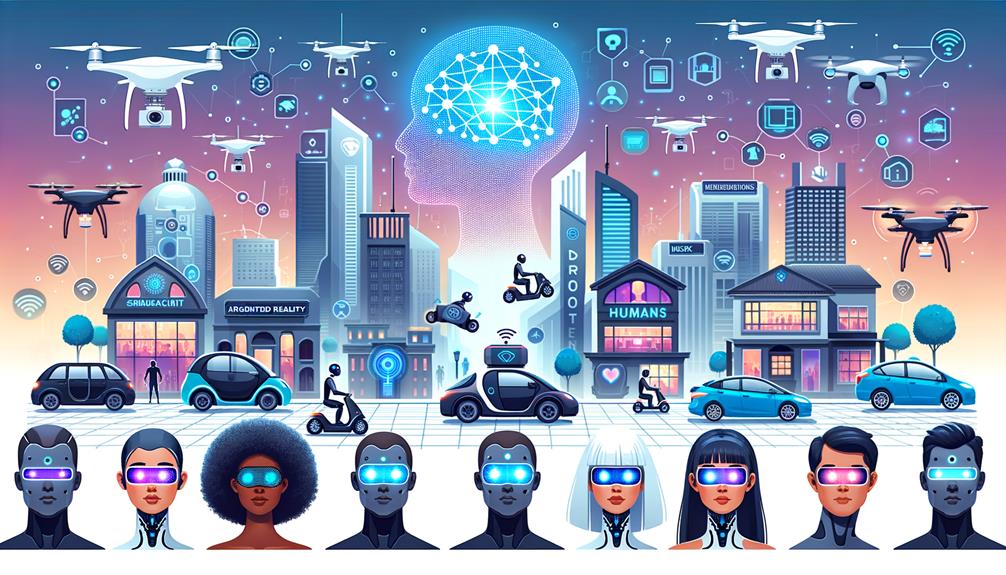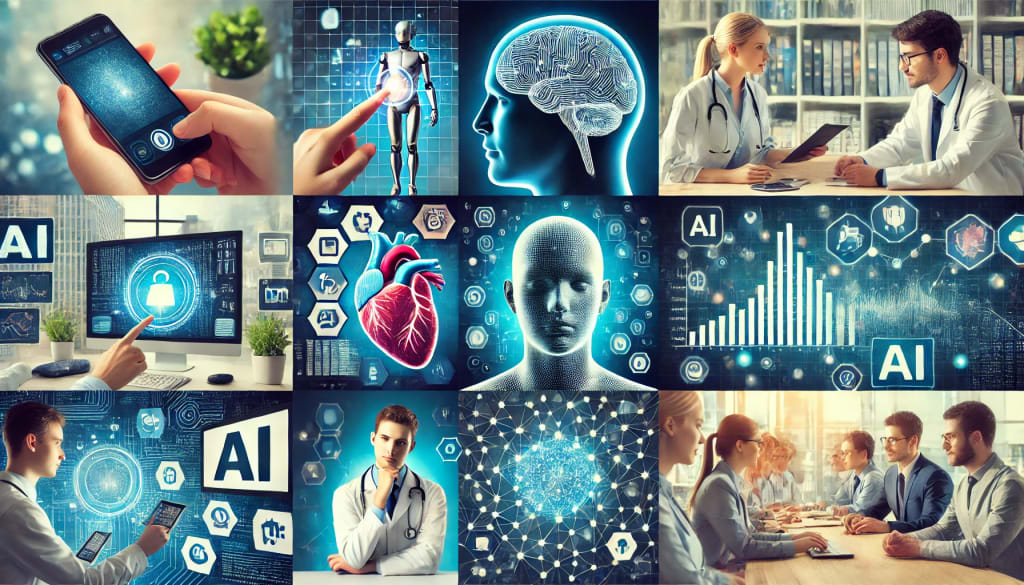How Artificial Intelligence is Reshaping Everyday Life
Artificial Intelligence (AI) is no longer a futuristic concept confined to science fiction. It is now an integral part of our daily lives, revolutionizing how we work, communicate, and interact with the world around us. From voice assistants to personalized recommendations, AI has seamlessly blended into our routines, making life more convenient and efficient. This article explores how AI is reshaping everyday life across various domains.

AI in Communication
One of the most noticeable ways AI has transformed daily life is through communication. Virtual assistants like Siri, Alexa, and Google Assistant help users perform tasks using voice commands, from setting reminders to providing weather updates. AI-powered chatbots have also become commonplace in customer service, providing instant support and resolving queries efficiently. Natural Language Processing (NLP) enables AI to understand and respond to human language, making communication smoother and more effective.
AI in Healthcare
AI is playing a crucial role in the healthcare industry by improving diagnostics, treatment, and patient care. Machine learning algorithms analyze medical data to detect diseases early, often with greater accuracy than traditional methods. AI-powered wearable devices track vital signs and alert users to potential health risks. Additionally, robotic surgeries, virtual health assistants, and telemedicine services powered by AI are enhancing healthcare accessibility and efficiency.
AI in Education
The education sector has significantly benefited from AI-driven advancements. Personalized learning platforms use AI to assess students’ strengths and weaknesses, offering tailored lesson plans to enhance their learning experience. AI-powered tutoring systems provide assistance outside the classroom, making education more accessible. Moreover, AI helps automate administrative tasks like grading, allowing educators to focus more on teaching and mentoring students.
AI in Transportation
The transportation industry has witnessed remarkable changes due to AI. Self-driving cars, powered by AI algorithms and sensors, aim to reduce human errors and improve road safety. AI-driven traffic management systems optimize traffic flow, reducing congestion and travel time. Ride-sharing services like Uber and Lyft use AI to match drivers with passengers efficiently, improving user experience and reducing wait times.

AI in Entertainment
AI has revolutionized entertainment by curating personalized experiences for users. Streaming platforms like Netflix, Spotify, and YouTube use AI to recommend movies, music, and videos based on user preferences. AI-generated content, such as deepfake videos and AI-written scripts, is also gaining popularity. Additionally, AI enhances gaming experiences by creating adaptive and intelligent non-player characters (NPCs) that respond dynamically to player actions.
AI in Finance
The financial industry leverages AI for fraud detection, risk assessment, and personalized financial management. AI-powered chatbots assist customers with banking queries, while robo-advisors provide automated investment advice. Machine learning algorithms analyze spending patterns and offer personalized budgeting suggestions, helping users make informed financial decisions.
AI in Shopping and Retail
AI-driven e-commerce platforms enhance the shopping experience by offering personalized recommendations based on user behavior. Virtual assistants help shoppers find products, compare prices, and make purchase decisions. AI-powered chatbots provide customer support, improving response times and customer satisfaction. In physical stores, AI-enabled checkout systems reduce wait times by automating the billing process.
AI in Smart Homes
Smart home technology has advanced significantly with AI integration. AI-powered devices like smart thermostats, security cameras, and lighting systems adapt to user preferences, enhancing comfort and security. Voice-controlled assistants enable users to control appliances, set reminders, and even order groceries effortlessly. AI-driven automation simplifies household chores, making homes more efficient and energy-saving.
AI and the Future
The impact of AI on everyday life continues to expand, with new developments emerging rapidly. AI-driven advancements in fields like robotics, augmented reality, and quantum computing are set to redefine the way we live and work. However, ethical considerations, including data privacy, bias in AI algorithms, and job displacement, must be addressed to ensure AI benefits society as a whole.

Conclusion
Artificial Intelligence has seamlessly integrated into our daily routines, transforming industries and improving convenience, efficiency, and personalization. From healthcare and education to entertainment and finance, AI continues to reshape the world in unprecedented ways. As AI technology advances, it is crucial to strike a balance between innovation and ethical responsibility to maximize its benefits for humanity. The future of AI is promising, and its potential to enhance our lives remains limitless.


